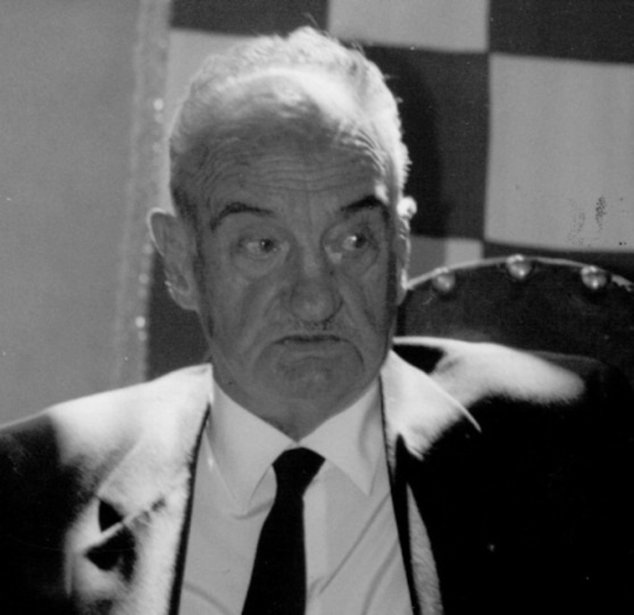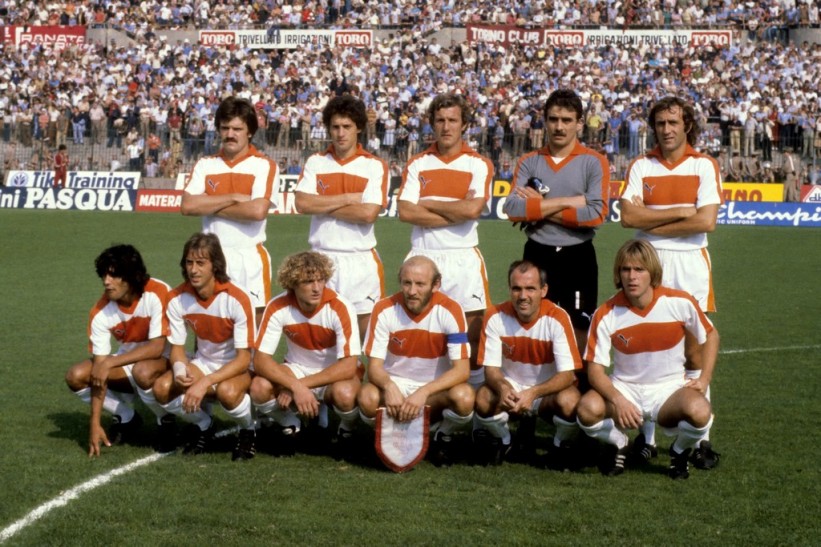“The old town sleeps while waiting for the emergence of the right sun. By the way, the sun that circulates in these parts, at sunrise and at sunset, it’s orange!” Marcello Melani
It was the summer of 1974 when fans of Unione Sportiva Pistoiese 1921, or Pistoiese for short, welcomed the arrival of new president Marcello Melani. To fans of I Arancioni this was a welcome relief; after a long and sometimes bitter campaign to remove former president Oriano Ducceschi. Under Ducceschi, the club had endured several seasons of mediocrity as they wallowed in Serie D.
Melani was a self-made man; born into a poor family in Pistoia, he made the most of his money in oil during the 1950s and ‘60s. Using the connections of his second wife and her family he gained considerable wealth. But calcio was always Melani’s passion; he was not only a visionary in business, but a generation ahead of his time when it came to sports.
Forward thinking as always, Melani had a vision and Valdinievole Union Calcio was his first choice at trying to achieve an impossible objective, a project which could be considered a failure, but the blame could not be apportioned to Melani himself.
His idea was simple in thought but proved to be anything but in practice; rather than a scattering of smaller district clubs he thought using the umbrella of the Valdinievole club he could unite the smaller sides together. Local pride, egos and infighting meant that, although the idea was sound in practice, he could not get everyone to pull in the same direction. So, in the summer of 1974, Melani became president of Pistoiese, his local club, and with no lack of self-confidence declared that, “Within five years the fans of Pistoiese will be watching Serie A football.”
Melani started making changes to fulfil his highly ambitious prophecy; a new head coach was installed in the shape of Dino Ballacci. This was something of a coup as Ballacci had just won promotion to Serie B with Alessandria. The defensively minded coach had guided I Grigi to promotion conceding just nine goals in 34 games. After a fall out with the Alessandria hierarchy and leaving just before the start of the 1974-75 season, Melani was swift to snap up the former Italy international as his new coach.
The impact was instant, I Arancioni won promotion from Serie D losing just twice and conceding only 11 goals in 34 games topping Group E. Ballacci could not replicate his success the following season as Pistoiese finished ninth in Serie C drawing an astounding 24 of 38 league games.
Melani, not wanting his project to stall, replaced Ballacci with former European Cup-winning player and former coach Bruno Bolchi. The mandate was clear: Promotion. And Bolchi did not disappoint. Leaving everyone else in their wake, Pistoiese ran away with the Serie C Group B, winning the title by eight points. Melani was only one step away from his dream as his club prepared for life in Italy’s second tier, within touching distance of the Holy Grail of Serie A.
Investment was made in the squad as they prepared for the new season. Former Sampdoria, Inter and Lazio midfielder Mario Frustalupi was brought to the club to add experience along with Torino prospect Giuseppe Dossena. Things got off to a disastrous start with just one win in ten games, and after a four-goal drubbing by Ternana, Melani acted by axing Bolchi and replacing him with Enzo Ricomimi, who only two seasons’ previously had guided Ternana to Serie A. His impact was immediate as Pistoiese beat Cagliari 1-0, but the season would be a struggle and survival was only just secured by a solitary point. One defeat and five wins in the last six games saved Pistoiese from the drop and Melani witnessed enough to leave Ricomimi in charge for the up coming season.
The proceeding fifth-place finish was a major improvement, missing out on promotion by four points. This convinced Melani to give Ricomimi his confidence and his money for a full-on push for promotion. Ricomimi spent wisely, adding youthful exuberance in Osvaldo Arecco and experience in Marcelo Lippi—both defenders from Sampdoria. Francesco Guidolin came from Hellas Verona to add energy into the midfield, and the physical presence of Livio Luppi arrived from Genoa.
The perfect combination of youth and experience worked perfectly and, albeit one year later than Melani’s crazy prediction, promotion was won. Losing just four games, I Arancioni finished runners-up to Como and reached the highest level of Italian football for the first time in their history. The dream had been achieved.
Such a feat did not go unnoticed by other clubs and plans for the first ever Serie A campaign hit a major complication as promotion-winning coach Enzo Ricomimi was headhunted by Sampdoria. The flirting from the Genoa club proved too much to resist for Ricomimi and he left to start what turned out to be an ill-fated stint with the Blucerchiati.
With little time to recruit, Melani promoted from within, and long-serving goalkeeper Lido Vieri, who had only just retired from playing after helping the club to win promotion to pursue a coaching career, landed his very first job.
The historic Pistoiese side of 1980-81 sporting their second strip during their one and only season in Serie A
Vieri only secured one win in the first six games; Melani not wanting to sack his coach so early hired former Torino and Italian national coach Edmondo Fabbri as technical director to aid the struggling Vieri. This proved successful but only in the short term; five wins in the next seven games including a historic away win over Tuscan rivals Fiorentina meant that after 13 league games Pistoiese sat an incredible sixth in Serie A.
But that was the last win of the season. The dream that Marcello Melani had worked so hard to achieve unravelled before his eyes. For the remaining 17 games there was no win, and the freefall continued until Pistoiese hit the bottom of the Serie A table and, inevitably, relegation followed.
Melani remained as Pistoiese president for another two years as the club flirted with relegation from Serie B. Ricomimi returned, but the magic had gone and eventually during the 1983-84 season a return to the peninsula’s third-tier happened. Melani left the club after the return to Serie C1 and the freefall continued after that with back-to-back relegations. Serie C2 football became the mainstay of the club.
Life can be cruel sometimes and not every story has a happy ending. Several bankruptcies later and the club can be found currently in Lega Pro (the current version of Serie C) and the days of players like Dino Zoff, Gaetano Scirea and Franco Baresi visiting the Tuscan club are distant memories. But the tenure of Marcello Melani remains the high point for fans of I Arancioni. Melani was close to the fans during his time at the club, even helping to pay for materials for the fans to organise choreographic material.
Melani was a local man who transformed his life from a poor upbringing to immense wealth, but he never forgot his roots. And, after his passing in 2002, the club, in a mark of respect, moved to change the stadium name. In 2006 the Stadio Comunale di Pistoia became known as the Stadio Marcello Melani—a fitting tribute to a man who was a visionary, a dedicated worker and above all a true gentleman.
Words by Mark Neale @neale_mark
‘Mark is an Italian and Dutch football enthusiast. He writes for The Gentleman Ultra and created @sempre_bari, the account for all things FC Bari in English.’


